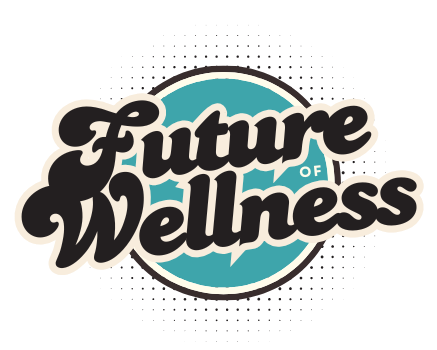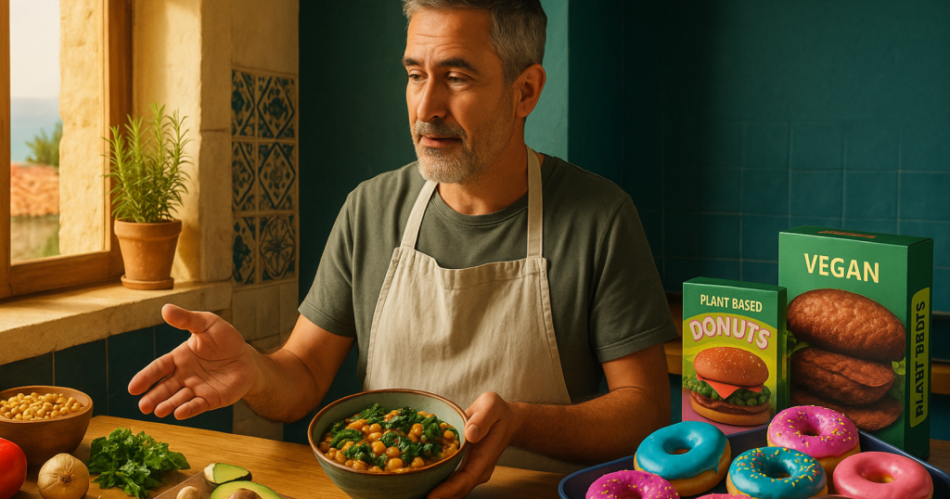I was wandering through Split’s cobblestone alleys this spring when the aroma of caramelized onions and smoked paprika pulled me into a tiny, sea-blue bistro.
The chef—let’s call him Marko—has cooked vegan for two decades, feeding backpackers by day and locals hunting comfort food by night.
After polishing off a bowl of his signature Dalmatian bean stew, I complimented him on creating “healthy indulgence.” He chuckled, slid me a plate of neon-pink “vegan” donuts, and said, “Not all plants are saints, my friend. Sugar is still sugar, even if the label says cruelty-free.”
Over espresso, Marko laid out a concern he hears often from wellness tourists: many assume that replacing meat with any plant-based alternative guarantees virtuous nutrition.
In reality, he argued, ultra-processed vegan staples—faux burgers, ready-made nugget bites, rainbow-sprinkled donuts—can be just as salty, sugary, and additive-packed as the junk food they replace.
His off-the-cuff critique felt anecdotal, but I wondered: does science agree?
New data confirm the chef’s hunch: some vegan products carry hidden health risks
The first study I pulled up after our conversation was an Imperial College London analysis of 118,000 UK adults.
Researchers found that heavy consumption of ultra-processed, plant-based foods (UPFs)—think mock-meat sausages or vegan frozen pizzas—was linked to higher cardiovascular-disease risk compared with diets centered on minimally processed plants.
Their takeaway was nuanced: swapping steak for soya mince can help the planet, but relying on factory-formulated patties instead of beans may nudge heart health in the wrong direction.
Salt is another stealth villain.
A 2024 Food Foundation “Rethinking Plant-Based Meat Alternatives” report examined supermarket faux meats and flagged sodium levels that often rival or exceed their animal counterparts, especially in bacon and sausage substitutes.
High sodium is a known driver of hypertension—the very condition many consumers hope to avoid by ditching red meat.
Finally, a summary of a Lancet-Europe cohort study added more weight: participants with the highest intake of plant-based UPFs showed elevated risks of cardiovascular disease and premature death, even when total plant intake was high.
Translation: kale salad lowers risk; deep-fried vegan nuggets don’t.
Why “vegan” on the label can mislead shoppers
Marko explained that tourists often treat vegan certification like a health halo. Yet the term only guarantees the absence of animal ingredients, not the presence of nutrients.
A coconut-oil croissant may contain zero cholesterol, but it can still deliver more saturated fat than a butter version.
Likewise, beet-juice coloring makes a burger bleed red, but doesn’t erase the stabilizers, maltodextrin, and salt needed to mimic texture. “It’s pastry chemistry,” he said, “not Mother Nature.”
The Imperial College study echoes this: ultra-processing—multiple refinement steps, additives for flavor, color, and shelf stability—alters the food matrix.
Fiber can be stripped — glycemic load can spike.
The result is a product that satisfies cravings yet bypasses the slow-digesting, vitamin-rich structure of whole foods.
Wider impact: navigating the plant-based aisle without losing health gains
1. Read past the vegan stamp
Nutritionists recommend checking sodium (aim
2. Prioritize whole-food swaps
Replace deli slices with marinated tofu or tempeh; opt for lentil-walnut taco “meat” over packaged crumbles. These require minimal processing and retain fiber, iron, and phytonutrients.
3. Watch portion creep
Imperial’s dataset suggests risk correlates with how much ultra-processed fare sneaks in. A once-a-week burger likely beats a nightly habit—even if both are plant-based.
4. Support chefs and brands doing it right
Marko sources Croatian chickpeas and sea salt, crafting burgers with five ingredients you can pronounce. He sells fewer per night than big brands ship per hour—but each patty delivers potassium, fiber, and half the sodium.
What industry voices say
Plant-based-meat companies argue that reformulation is underway.
Some brands have already cut salt 20% in European lines to meet looming UK nutrient targets.
Yet the Food Foundation notes “considerable variation” remains, urging clearer front-of-pack labelling so shoppers can see at a glance whether a soy sausage is sodium-bomb or balanced protein.
One cardiologist, unaffiliated with the studies above, told me via email that she encourages patients to “treat vegan junk food like omnivore junk food—a fun side note, not the staple.”
She applauds meatless Mondays for climate gains but warns that replacing deli ham with soy ham, potato chips with vegan crisps, and dairy ice cream with coconut sherbet “keeps the palate hooked on hyper-palatable formulas.”
Split’s lesson for the global vegan movement
Back in Marko’s bistro, I watched a backpacker pair polish those neon donuts, bragging they were “guilt-free.”
Marko raised an eyebrow and mouthed, “Sugar.”
His kitchen isn’t anti-treat. His menu still offers cakes. But each slice appears beside a small card listing grams of sugar and sodium — a gentle nudge for travelers lulled by the vegan halo.
The wider impact is clear: as plant-based products flood shelves (global sales hit $12 billion last year), regulators, chefs, and consumers must align on what “better for you” truly means.
If climate-conscious eaters drift toward salt-packed patties, the health dividend of ditching meat could vanish—and skeptics will pounce.
Marko’s mantra sticks with me: “A healthy vegan meal looks like it came from the earth, not a chemistry set.” It’s a standard worth remembering next time the grocery freezer flashes “100% plant-powered.”









